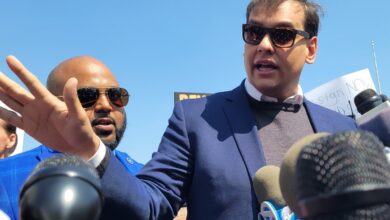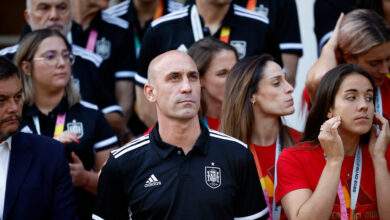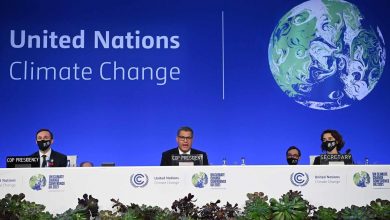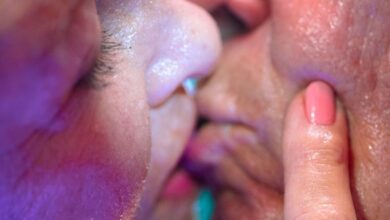Holding Space for Therapy Speak – The Assignment with Audie Cornish
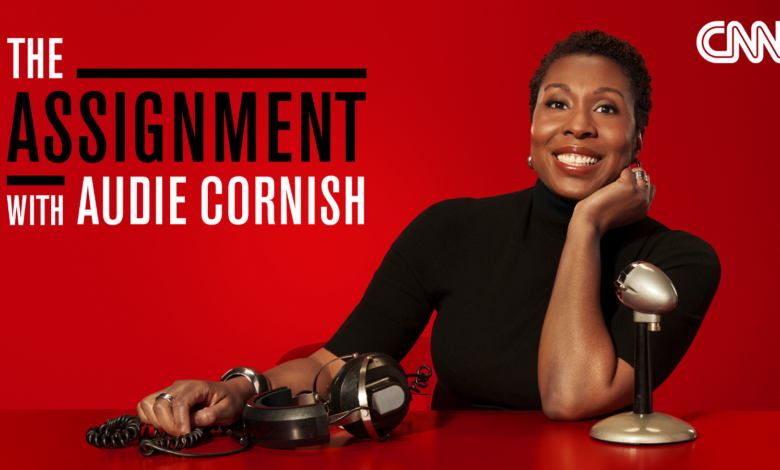
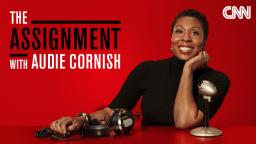
Like all good stories these days. This one starts with a viral TikTok.
Arianna Brandolini, TikTok
00:00:04
I’ve noticed you’ve been withdrawn and haven’t wanted to hang out recently. What’s going on?
That’s Dr. Arianna Brandolini, a clinical psychologist who specializes in treating anxiety, depression and trauma related disorders.
Arianna Brandolini, TikTok
00:00:18
I’ve treasured our season of friendship, but we’re moving in different directions in life.
Now, back in January, she posted this TikTok intending to give people guidance on a difficult topic: the friendship breakup.
Arianna Brandolini, TikTok
00:00:32
I don’t have the capacity to invest in our friendship any longer.
The Internet backlash was swift and brutal.
Arianna Brandolini, TikTok
00:00:39
What’s going on?
Commenters called Dr. Arianna cruel, uncaring and disingenuous. The Huffington Post said her approach is, quote, a trash move. I mean, basically, if we’re using Internet language, she was roasted for using therapy speak.
Arianna Brandolini, TikTok
00:00:55
I’ve treasured our season of friendship.
I’m being 100% serious when I say this, I would rather the friendship end by that friend almost killing me. I would literally prefer that than to have this conversation. Only a psychopath would say these things. These are- these are nightmarish things to say.
Now, Dr. Arianna didn’t intend for her video to be taken literally. She says she was trying to provide a few terms and phrases for anyone struggling to end a friendship and that social media did what social media does, which is strip away nuance. So I called her up to talk about the experience. So the title of this TikTok was, Dr. Ariana Brandolini, what was the title of this?
Dr Arianna Brandolini
00:01:42
I think it was “How to Break Up with a Friend.”
Have you actually done that in real life?
Dr Arianna Brandolini
00:01:49
I- I haven’t actually broken up with a friend. I’ve ghosted friends.
While Tik Tok can be a starting point for people seeking mental health resources, it’s not the same as seeing a professional. But more than ever, many of us are doing just that. So it makes sense that therapy speak — references to ideas like attachment style, boundary setting, holding space — well, it’s made its way into everyday language. Terms instructional inside the therapist’s office, but outside can hit the ear a little weird.
Dr Arianna Brandolini
00:02:23
I think the main criticisms were that it felt very impersonal and robotic. You know, a lot of the feedback was, you sound like I’m being broken up with by H.R. You know, someone at my job is like firing me. So it felt very impersonal. And then also that there was no, I think, you know, people took it very literally. So that’s why I went on and kind of did more of a response video where I was like, okay, this is what people are saying. This was the context behind the video. This is how, you know, the heart behind it, how I think it’s helpful for people to take it, you know, and I kept- just kept going.
I see you just shaking your head knowing the futility. So is the risk of misinterpretation worth it? How is our collective mental health these days, apart from being a running joke? And are therapists able to keep up with demand? Well, we’re going to talk about it today on the Assignment. TikTok certainly isn’t the only place where therapy speak is popular, but it plays a huge role in the way users, especially younger ones, get important information. Dr. Luana Marquis hadn’t seen Dr. Ariana’s video before. I showed it to her, but she completely got why it went viral.
Dr Luana Marques
00:03:52
And the thing is, I bet people felt really uncomfortable watching it because it creates this dissonance, right? I- when I first watched it, honest this response, I was like, whew, that would have been a little hard. And then I was like, yeah, but that’s my avoidant brain wanting to like, not deal with conflict.
Dr. Luana is the director of a community psychiatry program at Massachusetts General Hospital. She actually trains non mental health professionals to provide therapy based skills to marginalized communities.
Dr Luana Marques
00:04:19
I bet you went viral because it created so much dissonance. People have such a difficult time with conflict that I bet when you put it in people’s face, they went, oh, no, no, this is cold, this is detached. But I have to say the content is solid.
One of the reasons why I wanted to talk about this is because I do feel like there is this kind of saturation culturally of therapy speak. So you hear diagnostic language in places that are not diagnosing anything. Am I wrong about that? Because that was part of the thing that I think bothered me when I watched it. I was like, no, I don’t want your therapy speak.
Dr Luana Marques
00:04:58
I don’t think you’re wrong. I mean, I you know, I’ve done trauma research for many, many years, and trauma is the word that for me is always like, okay, if you’re going to talk about trauma, let’s define what we’re talking about.
Yes. And we’ve talked about that on the show. And I realize, wait, it’s not just trauma, right? You know, like, you know, like holding space for people. And what are some other ones? Are there other ones you guys can think of?
Dr Arianna Brandolini
00:05:24
Trigger, boundaries.
Dr Arianna Brandolini
00:05:26
Codependency, toxic.
Dr Luana Marques
00:05:29
Attachment.
Dr Arianna Brandolini
00:05:29
Gaslighting.
Codependency I hear all the time now, like anyone who’s ever date, anyone was codependent.
Dr Luana Marques
00:05:33
Yeah.
So in a sense, doctors Luana and Arianna both want to increase access to mental health resources without requiring an expensive appointment. So they’re all for therapy speak as long as it’s deployed responsibly.
Dr Luana Marques
00:05:49
What bothers me is when people are talking about what they don’t know, as if they know. And so, you know, trigger, I’ve been triggered. And and then it’s like you have a platform to talk about something that really has a lot of clinical implication. It’s like when people talk about, like, I’m so depressed. That’s not being sad. We all experience a lot of sadness, right? But like when we start to go to clinical terms, I think it gets dangerous, right? And so to me feels like it causes a lot of misunderstanding. And then people think everybody understands psychology which is not true.
Dr Luana Marques
00:06:27
Dr Arianna, what about you? Because in a way, being on TikTok, being in these spaces is part of the kind of dissemination of those ideas.
Dr Arianna Brandolini
00:06:36
It is a double edged sword where people are now able to talk about mental health more freely. They’re able to get information more freely. It’s helping us destigmatize things. It’s helping people feel like they have community, like they like they’re not alone in it. But yeah, as Dr. Luna said, you know, the problem is, is that you’re also- you know, as I also mentioned, you know, you have to, in terms of the online space, you’re sound biting things and you’re throwing out words that are much more complicated and much more nuanced.
Dr Luana Marques
00:07:13
Yeah. I mean, I’m nodding because, you know, I’ve spent 20 years here at Harvard Medical School doing really hardcore research. And the more- I get more and more frustrated because the dissemination doesn’t exist. Right? And so I think social media has the means to deliver real science to people where they’re at. They’re not going to get off their phone, they’re not get off TikTok. So we need people like Dr. Arianna to be able to be delivering solid science to people so that we can disseminate. Right? This idea that you said this before, Dr. Arianna, the idea that people have to become their own therapists. I say to my patients all the time, my job is to work myself out of a job. I need to teach you skills. You need to be able to apply them because you’re not going to have me forever. And so if there wasn’t a way to do that responsibly in social media, I think we’re bridging that gap between science and practice.
Does there need to be a dialog between counselors and patients that says this is not language that you’re supposed to use to go weaponize out against other people in the world? Are people using, in effect, pseudoscientific kind of language in order to strengthen their own position in whatever context they’re in, right?
Dr Arianna Brandolini
00:08:24
Absolutely.
I’m not just having a problem with you that I need to work out. You’re crossing several boundaries, and I’m going to need, as you said, like the season of our friendship has come to a close. Like, it gives someone kind of like almost like there’s objective reasons for me to make changes to this relationship that suit me. And they’re rooted in this diagnostic language that I’m going to now deploy against you. Maybe I’m being too cynical. So tell me if I’m being too cynical.
Dr Arianna Brandolini
00:08:53
No, I think-
Then we’ll tell my therapist. But yeah, like-
Dr Arianna Brandolini
00:08:57
I think you’re absolutely correct. However, I think that the people who are using it in an appropriate way are those who are in therapy. You know, I have conversations with my patients about, you know, it’s in the therapy room that we’re able to actually talk about how do you apply this concept and this word in an appropriate way, in a way that’s actually going to be healthy and approach relationships as opposed to make them unhealthier? You know, and so.
Yes, because I’m probably being a little cruel, saying weaponized, right? Like people- it’s also just casual use. Right. The using things in a casual way. Dr. Luana?
Dr Luana Marques
00:09:35
Yeah. So, you know, I for the last ten years I’ve spent all of my career training paraprofessionals and when I first-
And you just to be clear, you said paraprofessionals, right? So these are people who are non psychologists, but they’ve got to go out and give kind of therapy-like resources.
Dr Luana Marques
00:09:49
So yeah, so like the first work I did in this domain was with an organization called Roca, who works with young men coming out of prison. Those young men do not want to talk to a psychologist, certainly not a white psychologist. And yet they need some support and help to, you know, get out of the trouble they have. And what I’ve said again and again in community work is this: we talking about skills, not therapy. So I’m training you to deliver skills. The same way- you know, growing up in Brazil, at one point, I moved in with my grandmother and I became terrified of strangers. It was I was 15, was a big city, and my grandmother, with no college education, looked at me and says, you know, let’s go to the mall. And we go to the mall. And then she’s like, let’s go talk to that person over there. And I wanted to, like, kill her. I was like, no, but she did. And she did it again and again. And that turns to be the principle behind what we know to be exposure therapy. So I think maybe the way to talk about it, at least the way I talk about it, is can we teach skills? Can we teach skills that you can apply knowing that you’re not teaching therapy? And I think that, for me at least, keeps me in my lane.
We’re going to take a short break. When we come back, Dr. Luana Marques and Dr. Arianna Brandolino talk about how the pandemic affected our mental health and what people misunderstand about psychologists. We’re back with two professional psychologists who want to help more people help themselves. And in some ways, that’s easier than ever now because of remote therapy, basically normalized by the pandemic. But COVID also revealed how many of us were struggling, and it put an unprecedented strain on mental health providers.
Dr Arianna Brandolini
00:11:43
Yeah, it was a very bizarre experience where the world was shutting down. But I’m sure, Dr Luana, you had this experience, too, but my work was exploding, you know. And especially because I specialize in treating anxiety disorders I got a lot of outreach from even people in different countries, you know? And, you know, the ironic thing was, is that a lot of my patients who’ve been struggling with anxiety for a long time were doing pretty okay. They’re like, actually, this is an outer manifestation of my inner world. And now everyone finally gets it. It was a lot of-
Wait did they say it like that? Because that feels like therapy speak.
Dr Arianna Brandolini
00:12:16
Yeah. There you go. Yes.
Dr Luana Marques
00:12:18
It did.
Dr Arianna Brandolini
00:12:18
I’m a therapist. What do you want from me? This is how I talk.
But did they say it like that?
Dr Arianna Brandolini
00:12:25
I’m not sure.
Dr Luana Marques
00:12:26
Okay.
Dr Arianna Brandolini
00:12:27
But along those lines that’s what they meant. And so a lot of it was first time therapy users. It was people in my social sphere that were actually doing very poorly because they didn’t have a grid for stuff like this.
Dr Luana Marques
00:12:40
You know, I stopped having a wait list. It was going to become a two year wait list. I was like, I can’t have somebody wait that long to see me. And what I did is I focused more on the work I was already doing, which is a lot more of that training paraprofessionals. How do we bring these skills to as many people? And what it forced me to do is learn how to do this online. How do I train online, how do I train well online? How do I ensure — and for me this is really important — that they’re learning with good fidelity, that they’re not just learning a watered down version of cognitive behavioral therapy, which is what I’m trained on.
And we should say cognitive behavioral therapy — we won’t go down the rabbit hole. But one of the things about it is it does give people language to diagnose how they’re feeling in the moment and to take a breath and figure out what to do next. Right?
Dr Luana Marques
00:13:25
Well, and it can, right? I mean, all of us, our brain’s on all the time. What is cognitive behavioral therapy is what we say to ourselves, affect how we feel in our body and our hearts, and affects what we do. And so it’s happening all the time. And there’s a superpower in just even pausing.
It is a particular discipline, right? Within psychology. Not every psychologist you meet is going to use this approach, but I’m pointing it out because it’s the kind of approach I think that’s very sort of easily described in online spaces, in worksheets and workbooks and things like that.
Dr Luana Marques
00:13:57
That’s right.
But what are red flags to you, as the kids say these days? More therapy speak. What are the red flags that your online mental health support is not great support?
Dr Arianna Brandolini
00:14:13
You know, it’s complicated with the proliferation of the, like, coaching culture, right? Anyone can kind of call themselves a coach. And so, you know, it’s true, there’s no there’s no checks and balances of who who can kind of talk about the stuff online. And so, you know, I’m all for people sharing their own experiences. I know that there are a lot of content creators who deal with mental health stuff, and they’ve been able to talk about that struggle and help people find community, feel less alone and all of that good stuff. But, you know, as Dr. Luana said, when someone has no training, when they’re talking with authority on something that they have no authority in, that’s a dangerous place to be or it’s a dangerous way to communicate in a, you know, dangerous place for people to find themselves in. Because, you know, you can say anything with authority and people will believe you. And so-
Dr Luana Marques
00:15:06
You know, I’m impressed by the stuff you’ve done on social media and you and and-
Dr Arianna Brandolini
00:15:11
Aw thank you, Dr. Luana.
Dr Luana Marques
00:15:12
And I, I as I said, I’ve been hesitant. That being said, I get a kick in the butt from my publicisit because I have a book coming out. So here we go. I will start recording on TikTok, and I’d love to hear what you’ve learned from, you know, we I got the viral thing, but like, what are the lessons you’d share with other psychologists who are considering going on social media?
Dr Arianna Brandolini
00:15:33
I love that question. And Dr. Luana, I think you’d be great. You have so many wonderful things to say. You are so poised, you are so thoughtful. And I think that, you know, if people are trying to do this out of a popularity contest, it’s not going to work. And so I think it’s. What has been really beautiful is being able to have, even if it’s just a very small community of people who know a consistent voice that they can trust, which might be your voice. And so even in my own social media sphere, it’s still, you know, it’s not huge, but I have people who I talk with online and who trust my voice and who can ask me questions and who, you know, I can help in some small way. And so I think that the more positive voices that we have, the more, you know, educated, trained voices that we have online, the better. Because-
Well, how do you do it without contributing to the problems we were just talking about? Like, what lessons have you learned or what- this whole chapter right for you? What are the things that both of you are thinking about now as you think about how to do your work, but also knowing that some of these ideas, you know, they lose their power when people just throw them around.
Dr Arianna Brandolini
00:16:53
I don’t think that that’s something that you can avoid. You know, so again, even with this video, I don’t regret it at all because I think it’s actually- you can use it to have really good conversations like we’re having now. You know, and so I don’t think, we can’t be afraid of making mistakes. We can’t be afraid of saying the wrong things sometimes because we’re also human.
Dr Luana Marques
00:17:13
I think for me, as I thought about this more and more, it’s a matter of values. You know, I grew up poor in Brazil. I remember not having food. I understand what it feels like to not have access. And and so I want people to begin learning skills. And my mission that is is driven by this idea that, like I want to- the only reason to be there is to share some skills in the vulnerability of like what it took me to get to where I am. But you know, what had held me back is this like, what if I get misunderstood? If I have a video like she did and went viral and the what ifs had stopped me? And, you know, I think we talked a lot about the negative parts of of the social media. But I do think having more vocabulary and understanding that therapy talk can start to bridge the gap.
Dr Arianna Brandolini
00:18:04
Yeah.
I know, Dr. Luana, that you said that there is this huge gulf between the number of people who need mental health support and the number of people who are trained to provide it. Like, how big is that gulf?
Dr Luana Marques
00:18:18
So before the pandemic, the data from the CDC was 20% of people. Now, if you look at the data from the CDC, and I haven’t looked today, but it’s between 30 and 40% of the U.S. population.
Says they need some or are pursuing? What’s the-
Dr Luana Marques
00:18:31
Says that they have clinical levels of depression, anxiety. The data is 0.17% of the US population is trained as mental health professionals.
So it’s not in your head that you can’t find a therapist?
Dr Luana Marques
00:18:46
No, you cannot find a therapist. And especially if you want to find a therapist that is Black or brown. Forget it. You’re not going to find it. Think about that number. Right? 40% and 0.17%. And I you know, I do know that inside college, I don’t know if there are more people going to psychology, but there’s a lot of psychologists leaving psychologists, clinicians, and going to industry. There’s a major exodus. Friends of mine at Brown and Stanford and Harvard all left academia and went into industry and stopped seeing patients.
But what do you mean by exodus when they leave academia? When they leave private practice, where are they going to work?
Dr Luana Marques
00:19:24
Tech. A lot of scholars are leaving in going to startups and, you know, VR companies.
Dr Luana Marques
00:19:32
Yeah.
So my in-person therapist is going to go-
Dr Luana Marques
00:19:34
Work for a-
‘-help a startup to virtually help me instead?
Dr Luana Marques
00:19:38
Absolutely.
Dr Arianna Brandolini
00:19:39
Yeah, I mean, anecdotally, too. But, you know, we are limited by our time, our capacity to see one person at a time. And so being able, you know, people going to these big companies and doing things like Dr. Luana describes, it is, it’s more financially lucrative. And, you know, a lot of people who need the most help can’t necessarily pay for it or can’t pay that much. You know, and so it’s this conundrum and it’s really tragic. But those who can afford therapy are a certain type of person and a lot of people who need it can’t. And so then, you know, there’s therapists who, how do you kind of juggle your own sense of making your own money while helping people? And, you know, it feels it feels overwhelming a lot of the time.
What do you consider the biggest misconception about your profession?
Dr Luana Marques
00:20:42
That we have the answer.
Dr Arianna Brandolini
00:20:44
Love that.
Dr Luana Marques
00:20:45
We- we’re trained, but we don’t have all the answers. People have the answers inside of themselves. And our job is to guide them. But we can’t read minds and we don’t have all the answers. And we’re not perfect. That’s the other one. They look at therapists, they’re like oh my God, you’re like, so put together your life is perfect. That is not true. We’re humans.
Yeah, there’s some irony there because I think sometimes the people who fall into the trap of thinking that one person has the answers or one book has the answers, or this TikTok has the answers is because they’re doing everything in isolation.
Dr Arianna Brandolini
00:21:15
Absolutely.
Right? And I think when you are feeling down, when you are having any kind of, you know, sadness, sometimes isolation is part of that. Right? You were like, maybe I’ll just go solve this on my own in a way, if I just read the right book or, you know, like follow this person on TikTok, they kind of make me feel better. It’s actually pulling away from that like constellation of of resources, right?
Dr Arianna Brandolini
00:21:41
Yeah. Because when we’re in isolation, we’re in an echo chamber of our own thoughts and our own dysfunction. Right? And so it’s actually we need community. We need to be in relationships to be able to have people call us out, be mirrors, say, hey, that’s actually not the right way to approach this and be able to be willing to have people speak into our lives in that way. And, you know, that’s that’s up to each individual themselves. You know, we can’t make people do that even when we talk about online stuff. You know, you can’t necessarily control how someone is going to take what you say.
Given what you’ve said, when should a person definitely consult a professional instead of turning to these other resources for guidance? And we say this knowing how difficult it can be, but what are things you want people to keep in mind about when it’s time to really seek help? Dr Luana?
Dr Luana Marques
00:22:29
Two things. We all know are internal- emotional, internal temperature. I think about our temperature, sadness, anxiety as a thermometer, and it gets hotter than it starts to do two things, it starts to interfere with your life, or it causes more distress. And you start to look at the domains of your life. Is it interfering in your romantic relationship, in your work? Is it getting in the way of sleep? And the more you start to add up that interference in different domains, the closer you get to seeking help. So that’s one. The other one is our friends and our family are great mirrors. And so sometimes it’s just looking around and people are maybe saying to you things like, oh, maybe it’s time to get some help. Taking that and just thinking about it. But those are the two things I say to patients. Just watch your temperature and look at the mirrors in your life.
Dr Arianna Brandolini
00:23:20
When a lot of these things start to impact your everyday life and your functioning in your everyday life, you know the state of your relationships, how you’re able to function at work, even your own health, like your sleep, the way that you eat. You know, all of these, all of these things are markers of maybe that healthiness in your life. And also a lot of it is too that, you know, as Dr- I love how Dr. Luana to put that. See, this is why it’s so great to have people who are professionals give words for what we’re experiencing. So like that internal temperature, you know, I work with a lot of people who have high functioning anxiety and so they look like they have it all together, but internally they’re burning up. It’s like they’re doing things with a 50 ton weight on their back and life doesn’t actually have to be that hard, you know? And so I think that there are all these fears to measure that. And so when in doubt, talk to somebody.
Well, I want to thank both of you for speaking with me, for taking the time out. Dr. Arianna Brandolini, thank you for your time.
Dr Arianna Brandolini
00:24:22
Thank you for having me.
And Dr. Luana Marques, thank you so much for speaking with me.
Dr Luana Marques
00:24:27
It’s a pleasure. It’s great to be here with both of you.
Dr. Arianna Brandolini is a clinical psychologist with a practice in New York City. Her TikTok handle is @answeranxiety. Dr. Luana Marques is at Massachusetts General Hospital, where she’s the director of the Community Psychiatry Program for Research in Implementation and Dissemination of Evidence-Based Treatments. Goes by PRIDE. She also has a book coming out in May called “Bold Move: A Three-Step Plan to Transform Anxiety Into Power.” The Assignment is a production of CNN Audio. Our producers are Madeleine Thompson, Jennifer Lai, Lori Galaretta, Carla Javier and Dan Bloom. Our associate producers are Isoke Samuel and Allison Park. Our senior producers are Matt Martinez and Haley Thomas. Mixing and Sound Design by David Schulman. Dan Dzula is our technical director. Steve Lickteig is our executive producer. Special thanks to Katie Hinman. I’m Audie Cornish. Thank you for listening.
